Have you ever found yourself in a situation where you need to book a last-minute trip, but you're unsure how to justify it in a letter? Whether it's for a family emergency or an unexpected business opportunity, crafting the right message can make all the difference. In this article, we'll guide you through the essential elements of a compelling letter that clearly communicates your need for travel while addressing potential concerns. So, let's dive in and explore the best ways to articulate your last-minute travel request!

Purpose of Travel
Last-minute travel requests can stem from various purposes, such as attending a critical business meeting, participating in a significant industry conference, or addressing an urgent client matter. This travel may involve destinations like Las Vegas for the annual CES technology showcase or New York City for a high-stakes negotiation. Justification for these requests often includes the potential impact on revenue, relationship-building opportunities, and the importance of face-to-face interactions in decision-making processes. In addition, last-minute flights may present unique challenges, including limited availability or higher costs, impacting budgeting considerations. Attention to these factors ensures it aligns with strategic goals and showcases urgency and necessity.
Urgency and Impact
Last-minute travel requests often arise from urgent situations requiring immediate attention. For instance, a corporate meeting scheduled in New York City may necessitate travel arrangements with less than 48 hours' notice. The impact of this meeting could potentially influence contract negotiations exceeding $1 million. Additionally, a client emergency in Texas may demand on-site intervention, emphasizing the need for swift action to maintain client relationships and uphold company reputation. The urgency of addressing these critical events cannot be overstated, as delays could lead to significant financial losses or deteriorating partnerships.
Cost Considerations
Unexpected travel expenses can significantly impact budget allocations for departments. Last-minute flight fares can exceed standard rates by up to 200%, especially during peak seasons such as summer or holidays. Accommodations in major cities like New York or San Francisco can average $250 per night, adding further burden to departmental budgets. Finalizing travel requests promptly allows for cost-effective options, avoiding premium rates associated with delayed bookings. Utilizing tools like corporate travel management systems can aid in securing discounted rates and overseeing expenses more efficiently. Overall, careful consideration of travel costs ensures adherence to financial plans and maximizes available resources.
Logistics and Itinerary
Last-minute travel requests often stem from urgent business needs or unforeseen circumstances. Effective logistics planning is crucial to ensure a seamless trip. Considerations such as flight availability, accommodation options, and transportation methods must be assessed promptly. For instance, booking a direct flight from Los Angeles International Airport (LAX) to New York's John F. Kennedy International Airport (JFK) may save valuable time, ideally within a 6-8 hour timeframe. In terms of itineraries, it is vital to have confirmation of meetings or events, such as a conference scheduled at the Javits Center, to synchronize travel schedules. Efficient travel can also benefit from arranging local transport services, such as ride-sharing or car rentals, for smooth transitions between venues.
Authorization and Documentation
Last-minute travel requests often require thorough justification due to the need for quick approvals and the potential impact on budgetary constraints. In organizations, authorization processes involve obtaining consent from supervisors or management, ensuring alignment with corporate travel policies established in January 2023. Detailed documentation, including itineraries, cost breakdowns, and purpose of travel, must accompany requests to validate the necessity of the trip. This can include necessary meetings, conferences, or site visits relevant to ongoing projects. Additionally, compliance with travel guidelines set by financial departments ensures accountability and traceability for expenditures. Timeliness is critical, as requests submitted within one week of travel can complicate booking logistics and expense authorization significantly.
Letter Template For Last-Minute Travel Request Justification Samples
Letter template of unexpected travel justification for client engagement.
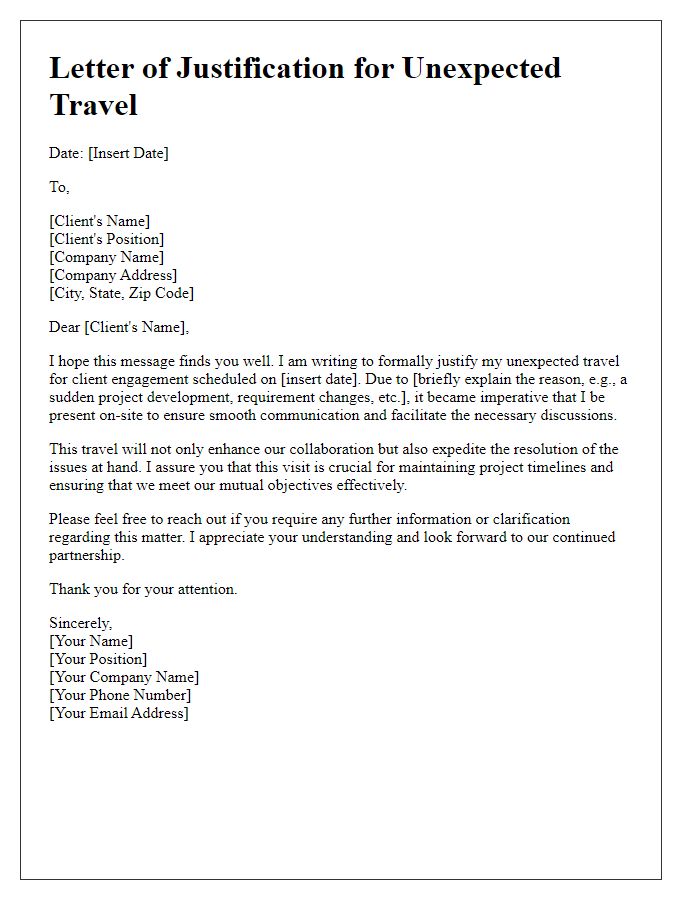
Letter template of emergency travel justification for health-related issues.
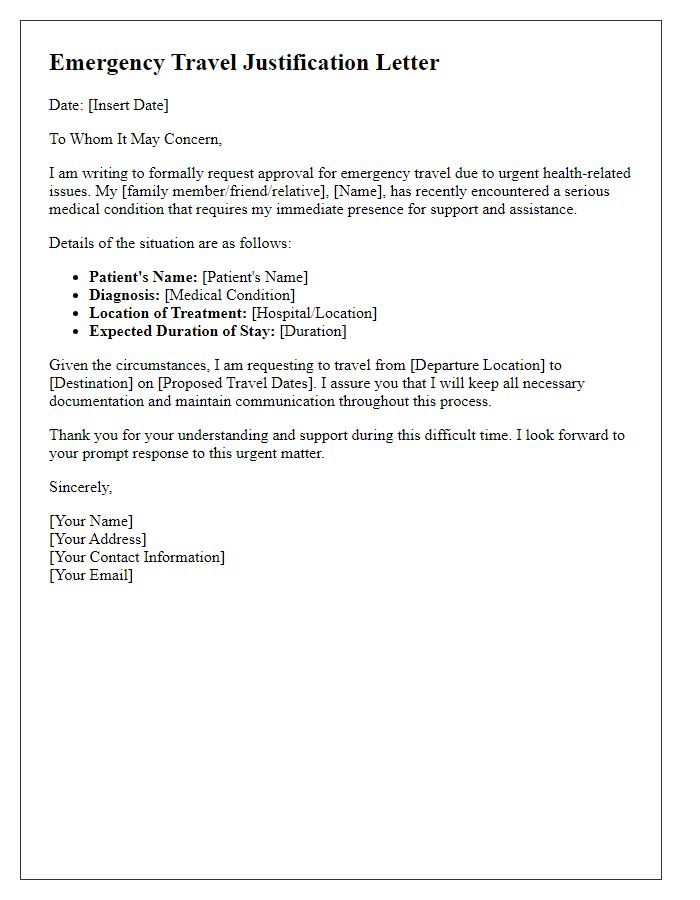

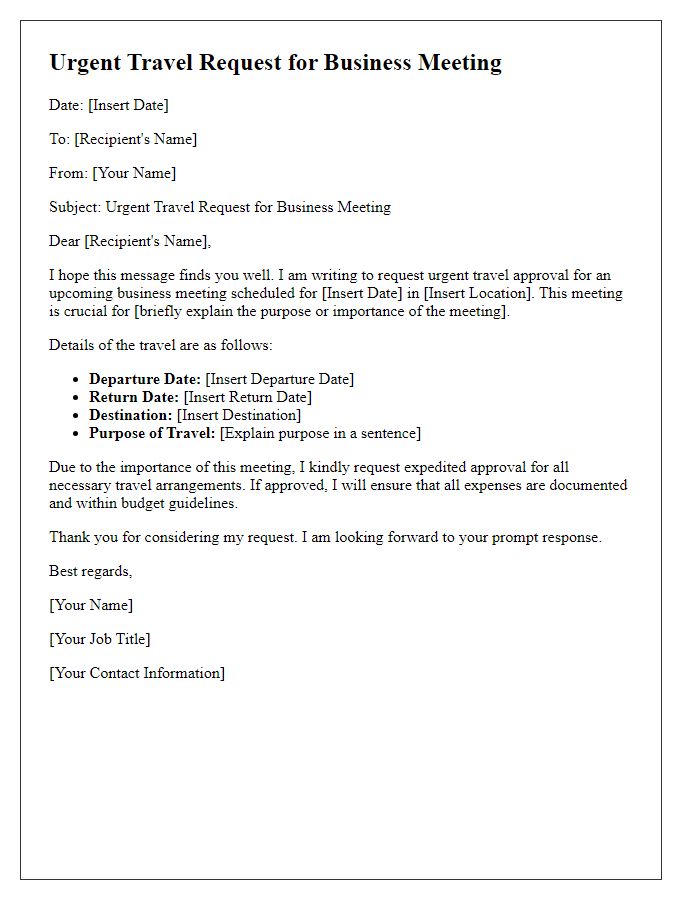
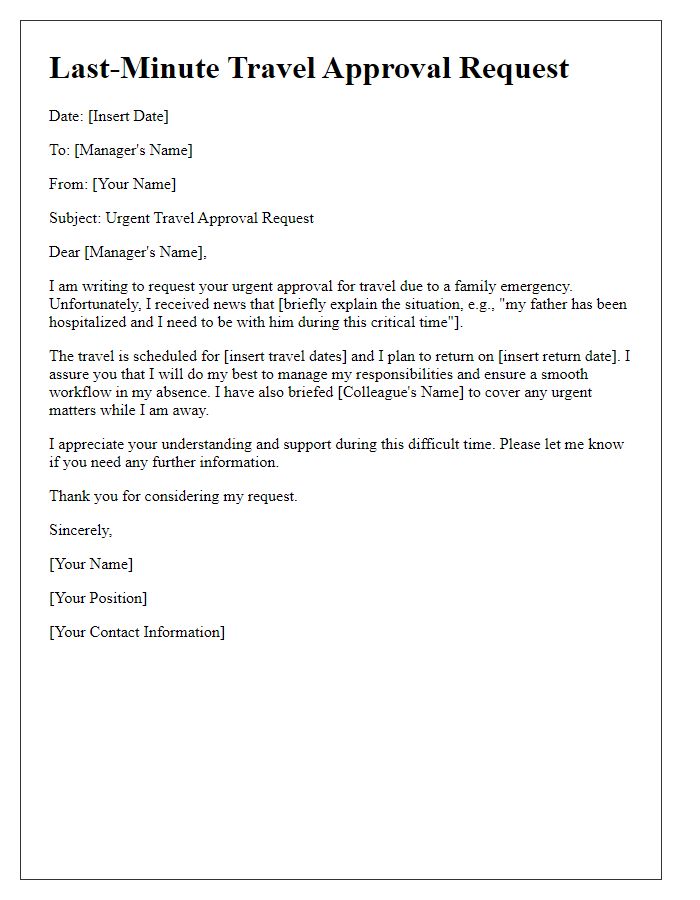
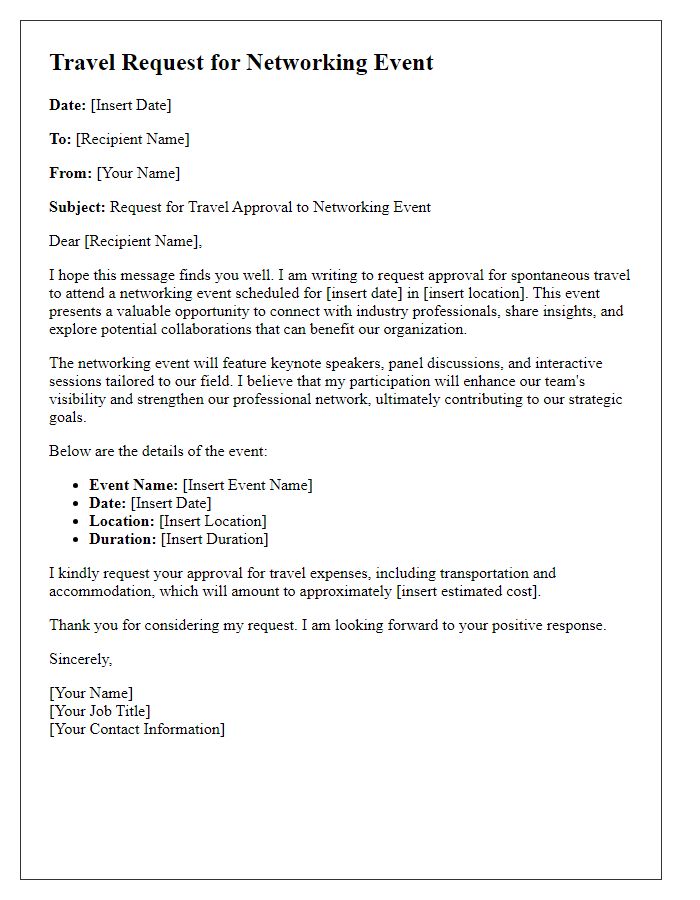
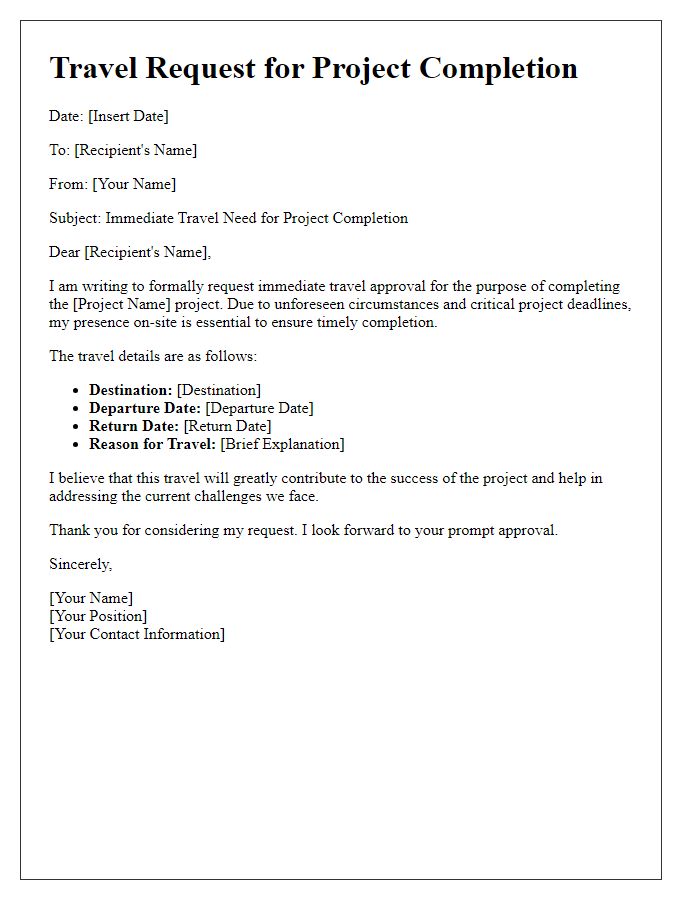
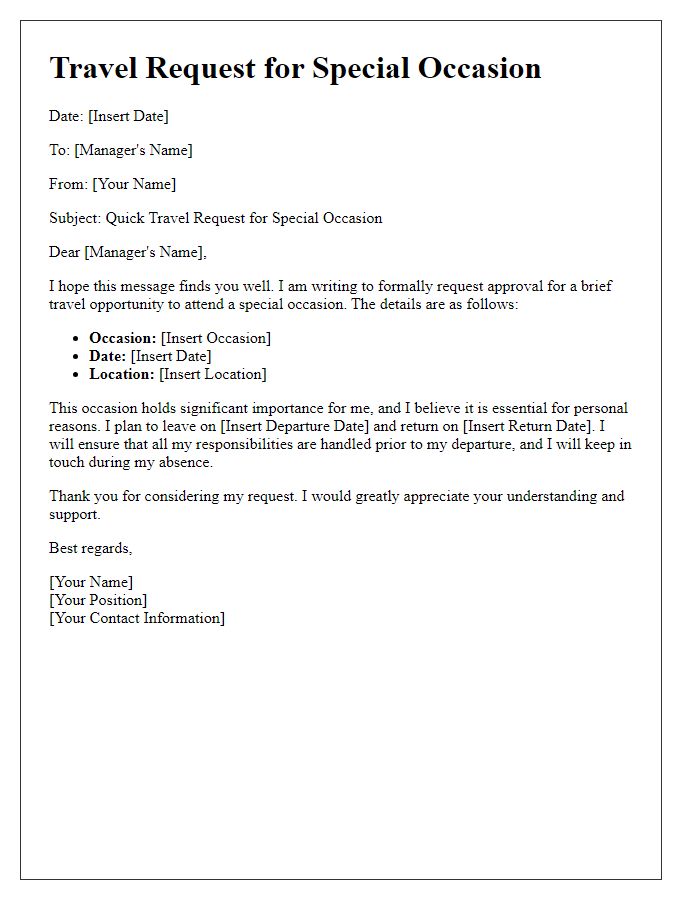
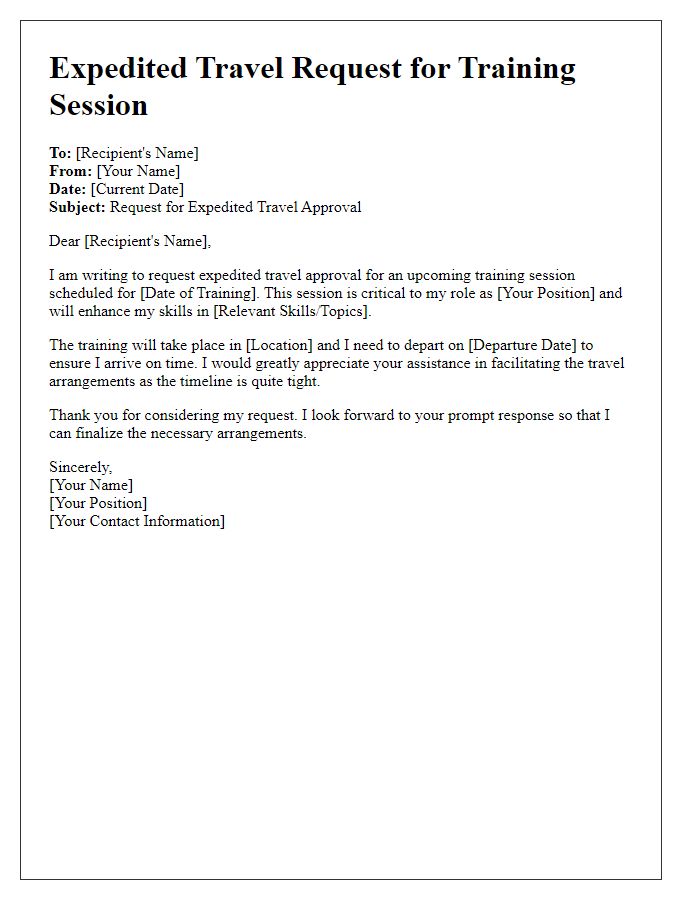
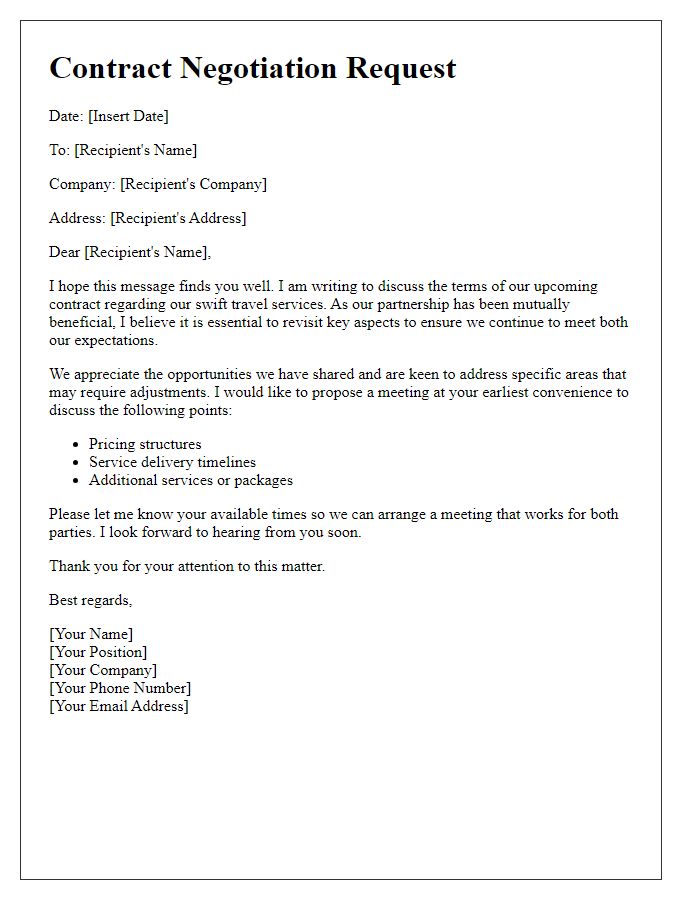
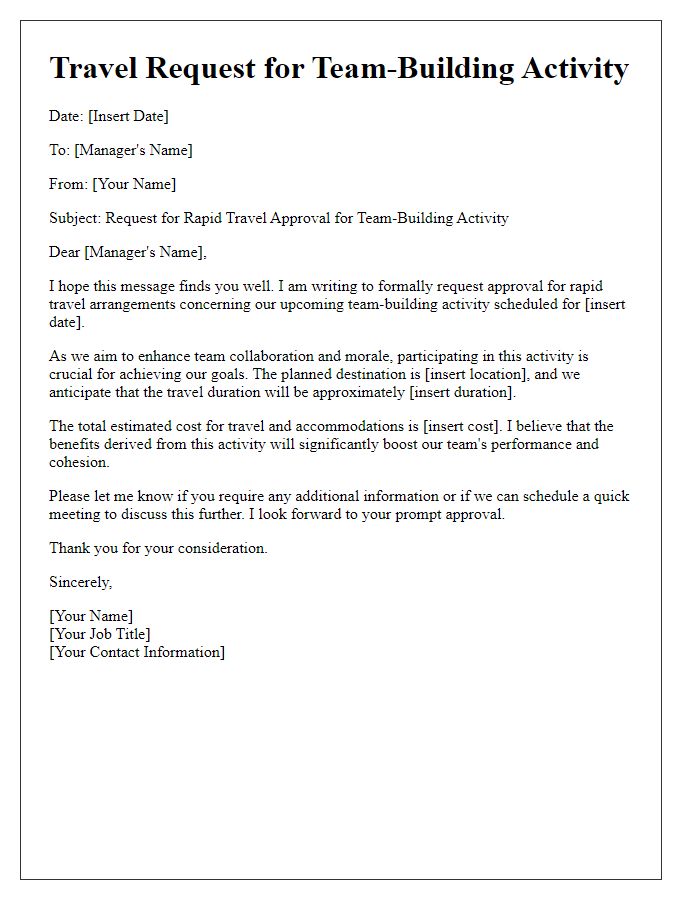

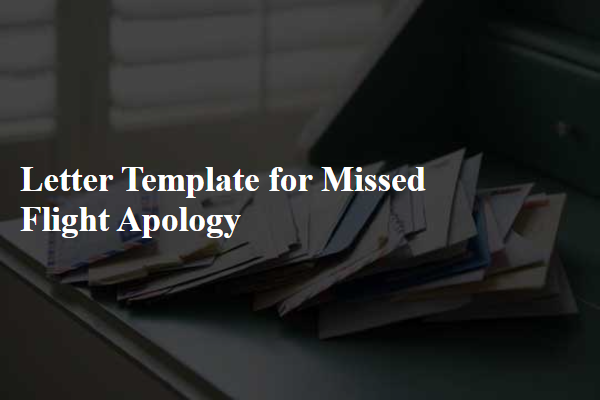
Comments